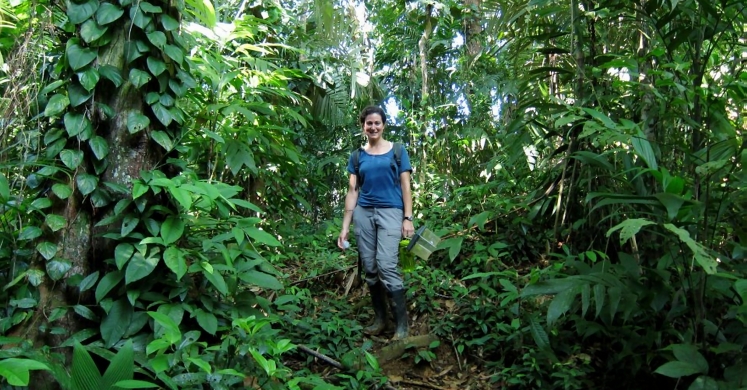Blog

Meet a Scientist: Layla Freeborn
How exciting is it to see a bright, beautiful monarch butterfly, its copycat, the viceroy? Or pictures of a colorful frog from the tropics? Or a vibrant red cardinal as it swoops by through the neighborhood? All of these animals are particularly noteworthy because their colors are so unusually bright. Often, bright colors mean something different for different species — perhaps attracting a mate, warning would-be predators of poison, or tricking would-be predators into incorrectly assuming they are poisonous! Understanding the meaning and pigmentation behind an animal’s color can be tricky work, but it’s just the job for University of Pittsburgh graduate student Layla Freeborn!
Layla’s work focuses on some notoriously colorful species — poison dart frogs.
“My research attempts to figure out the cellular and molecular basis of bright coloration in these animals to better understand how such a large diversity of color morphs evolved,” she explains. “I’m lucky that this includes beautiful tropical forests in Central American countries like Panama and Costa Rica, where I spend several weeks at a time looking for frogs!”
This Saturday, Layla will be at Phipps Conservatory as a part of our regular Meet a Scientist series — an opportunity for the Pittsburgh community to meet some of the researchers working right here in our Steel City. Meet her in the Tropical Forest this Sat., Aug. 19, from 1:30 – 3:30 pm. You will be able to ask her questions, try your hand at identifying tropical species of frogs, and explore the complex way frogs display different colors! You will have a wonderful time chatting with someone so excited to tell you about intriguing details of life on Earth.
“My curiosity about how the natural world operates — and the idea that I could make a living trying to understand it — drove me to pursue graduate studies in biology. Science is an integral part of our lives, so it’s important that everyone has an understanding of the basics.”
Photo Credits: Bernard Dupont CC-BY-SA-2.0, and Layla Freeborn

